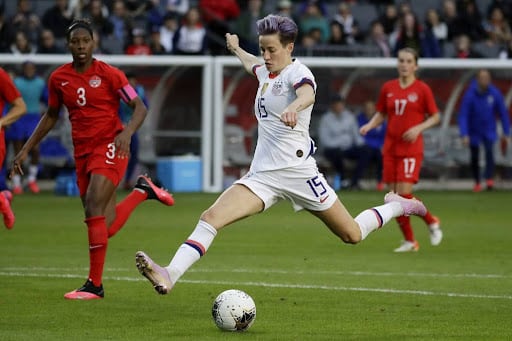The relationship between sports and cannabis has been a topic of growing interest in recent years. As cannabis laws evolve worldwide, questions arise about whether professional soccer players can legally use cannabis products, including CBD and THC-based items. This article explores the legalities, implications, and considerations surrounding the use of cannabis by soccer players.
The Legal Landscape of Cannabis
Cannabis legality varies significantly across countries, states, and even municipalities. Broadly, cannabis products can be categorized into two types:
- CBD Products: Derived from hemp, these contain minimal amounts of THC (less than 0.3%) and are typically non-psychoactive.
- THC Gummies: These are derived from marijuana and can produce psychoactive effects.
International Legal Status
While marijuana remains federally illegal, many states have legalized its medical and recreational use. CBD products derived from hemp are legal nationwide, provided they meet federal THC limits.
Many countries allow CBD use, but marijuana laws differ, with some permitting medical use and others outlawing it altogether.
Countries like Uruguay and Canada have fully legalized marijuana, while others maintain strict prohibition.
Understanding local laws is crucial for players who travel internationally for tournaments.
Cannabis and Anti-Doping Regulations
Soccer players must also consider anti-doping regulations. The World Anti-Doping Agency (WADA) governs substances banned in sports, including those used by FIFA and other soccer organizations.
WADA’s Stance on Cannabis
- THC: WADA bans THC during competition, citing potential performance effects and concerns about athlete health and safety. A positive test for THC can lead to sanctions.
- CBD: CBD is not prohibited by WADA, but athletes must exercise caution. Some CBD products may contain trace amounts of THC, leading to accidental violations.
Testing Thresholds
WADA’s threshold for THC is 150 ng/mL in urine. This allows for some tolerance, acknowledging that THC can remain in the system for days or weeks after use.
Benefits and Risks of Cannabis for Athletes
Soccer players may consider cannabis for its potential benefits, but they must also weigh the risks.
Potential Benefits
- Pain Management: Cannabis, particularly CBD, may help alleviate chronic pain and inflammation from injuries.
- Stress Relief: THC and CBD products are known for their relaxing properties, which could help manage stress and anxiety.
- Sleep Aid: Cannabis may promote better sleep, aiding recovery and performance.
Risks
- Legal Repercussions: Using cannabis in jurisdictions where it’s illegal could lead to fines or arrest.
- Doping Violations: Inadvertent THC consumption from contaminated CBD products could result in penalties.
- Performance Impact: THC’s psychoactive effects might impair coordination, reaction time, and focus—all critical in soccer.
- Public Perception: Athletes using cannabis might face criticism, particularly in regions with conservative views.
Case Studies of Athletes and Cannabis
Several high-profile athletes have spoken about their cannabis use, both positively and negatively.
Megan Rapinoe (Soccer)
The U.S. Women’s National Team star advocates for CBD use, emphasizing its benefits for recovery and stress management. She’s partnered with CBD companies to promote its safe and legal use.
Other Sports
Athletes in other sports, like MMA fighter Nate Diaz, have openly used cannabis products, often sparking debates about their appropriateness in professional sports.
Practical Considerations for Soccer Players
For soccer players considering cannabis use, a thoughtful approach is essential.
Consult With Medical Professionals
Athletes should discuss cannabis use with sports doctors or other medical professionals familiar with anti-doping regulations. These experts can:
– Recommend appropriate products.
– Advise on dosage and timing.
– Monitor for potential side effects.
Choose Reputable Brands
Selecting high-quality cannabis products from trusted manufacturers is critical to avoid contamination with banned substances. Look for products with third-party lab testing and clear labeling.
Timing Matters
Avoid using THC products close to competition to reduce the risk of positive tests. If using CBD, confirm that it’s free from THC.
Understand Employer and League Policies
Many leagues and clubs have their own rules regarding cannabis use. Violating these policies could result in suspension or termination.
The Future of Cannabis in Soccer
As societal attitudes toward cannabis shift, the sports world is also evolving. Here are some potential trends:
- Greater Acceptance: With growing evidence of cannabis’ therapeutic benefits, leagues may adopt more lenient policies.
- Improved Testing Standards: Advances in testing could differentiate between recreational and medical cannabis use, reducing penalties for inadvertent THC exposure.
- Increased Education: Organizations might focus on educating players about safe and responsible cannabis use.
Conclusion
The legality of cannabis use for soccer players depends on a complex interplay of local laws, anti-doping regulations, and league policies. While CBD products are generally more acceptable, players must exercise caution to avoid inadvertent rule violations. THC use remains risky, especially during competition, due to its legal and regulatory implications.
For soccer players considering cannabis, informed decisions are paramount. By consulting medical professionals, understanding regulations, and choosing reputable products, athletes can navigate this evolving landscape responsibly. As the conversation around cannabis continues to grow, the sports world may see more clarity and acceptance in the years to come.




